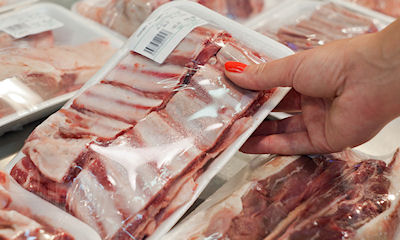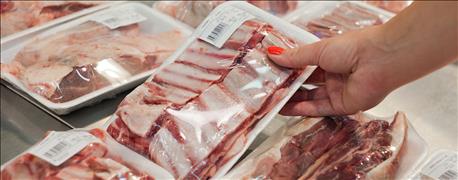
The U.S. House voted 300-131 late Wednesday to remove the U.S. County-of-Origin Labeling rule that indicates on packaging of certain meats and foods where the originating animal was born, raised and slaughtered.
The move comes shortly after Canada and Mexico said they would seek WTO permission to levy about $3 billion in retaliatory measures on the U.S. for violations of WTO regulations. Canadian Ag Minister Gerry Ritz estimated it would be late summer when the retaliation process could be completed.
The legislation is the latest in a lengthy battle between the U.S. and Canadian farm groups and governments over the rule.

House of Representatives decides to scrap Country-of-Origin labeling following Canada's retaliation announcement
The countries say the COOL rule discriminates against their meat products, constricting trade. Supporters of the rule say that it provides an opportunity for U.S. ranchers to differentiate their products and allows consumers to be more informed about their food.
House Ag Committee Ranking Member Collin Peterson, D-Minn., a supporter, said Canada's claims that the COOL rule have caused economic harm haven't been substantiated.
Related: Lawmakers weigh country-of-origin labeling retaliatory concerns
"More than 60 other countries, including Canada, have their own version of COOL. In fact, Canada has a host of protectionist agriculture laws in place that damage the U.S. dairy, poultry and egg sectors," Peterson said during his floor statement.
"The Canadian system puts U.S. products at a disadvantage every day. Yet the Canadians take issue when we try to give consumers additional information on where their meat comes from, claiming it disadvantages Canadian producers."
Another supporter, the National Farmers Union, said repealing COOL was a "knee-jerk reaction." The bill was introduced in the House Ag Committee two days after the WTO dismissed an appeal of the ruling the found it noncompliant with trade rules.
"Instead of allowing members of Congress the opportunity to debate and come to a reasonable solution to deal with the WTO compliance issue, the House has instead given us a reflexive reaction to repeal a very popular labeling law," NFU President Roger Johnson said.
~~~PAGE_BREAK_HERE~~~
House Ag Committee Chairman Mike Conaway, R-Texas, said he's long been an opponent of COOL, citing costs without benefits.
"The increased costs of producing, processing, and marketing food products to comply with COOL requirements without a commensurate measurable increase in consumer demand results in economic losses to producers, packers, retailers, and consumers and leads to a smaller overall industry with higher consumer prices and less product available," he said in a floor statement.
"So here we are with a policy that imposes high costs and no benefits, and if we keep it in place, our national economy will suffer significant damage that could reach into the billions of dollars."
Following the vote late Wednesday, the National Cattlemen's Beef Association called for quick passage by the Senate. "Retaliation will be in the billions, and our economy cannot afford that hit," NCBA President Philip Ellis said.
For the American Soybean Association, a key concern is the potential damage to the United States' trading relationship with Canada and Mexico. According to a list released in 2013, shortly after the WTO denied COOL and demanded a revision, goods affected by Canada's retaliation could include produce, meat and even wooden office furniture.
Related: Canada files WTO request for $3B trade retaliation on COOL
Another issue is demand for soybeans – soybean products – which ASA's Chairman Ray Gaesser said could see a hit with the retaliation.
"Mexico is the United States’ top export customer for U.S. meat products, and Canada is our third largest customer. In 2014 the United States exported nearly $7 billion worth of U.S. pork, poultry, and beef to these markets – all fed on diets of U.S. soybean meal," he said.
The bill now moves to the Senate. Senate Ag Committee chairman Pat Roberts, R-Kan., was contacted last week by Canadian officials during a visit to Washington, D.C., according to statements from Canadian Ag Minister Gerry Ritz during a press call last Thursday, but he said only that the two parties had discussed the rule repeal.
Roberts shared in a statement following the May WTO appeal announcement that he would "consider any solution" – including repeal – to avoid retaliation and make the COOL rule WTO compliant.
About the Author(s)
You May Also Like




